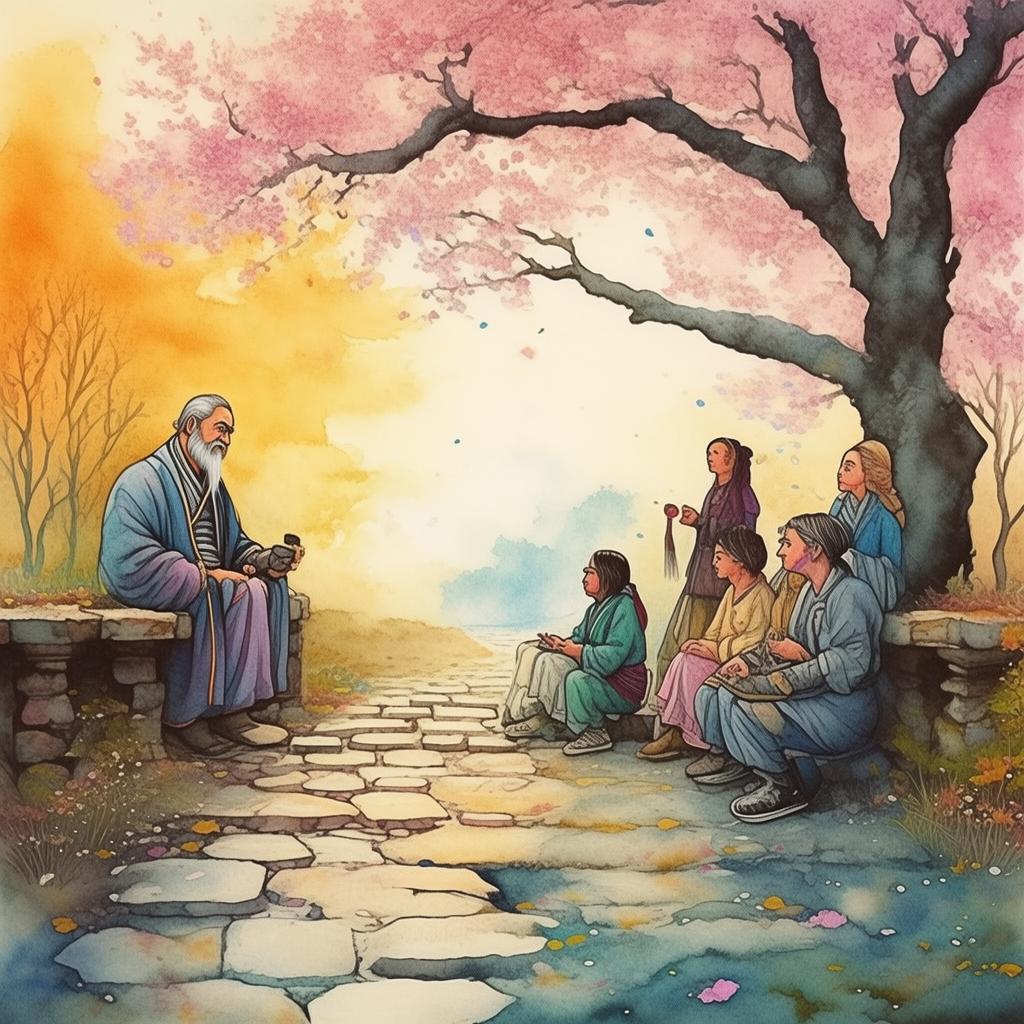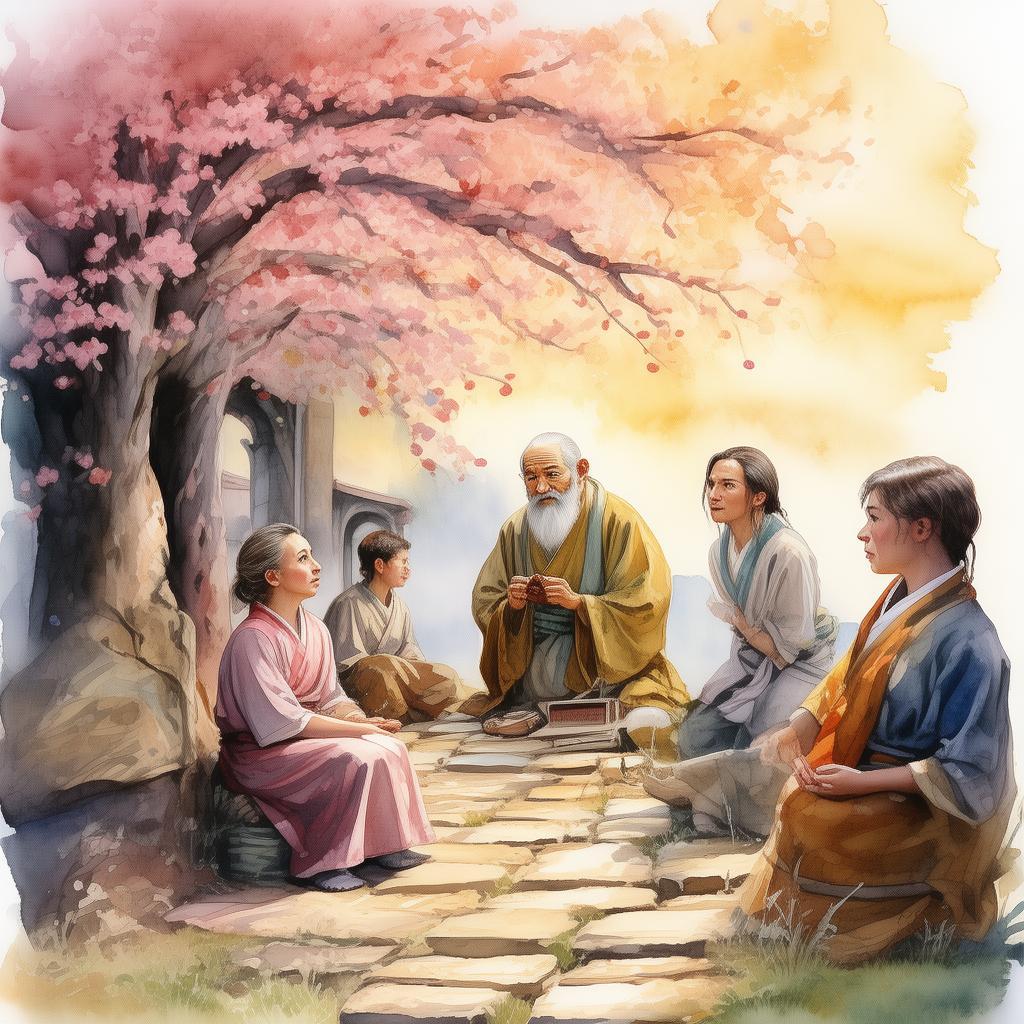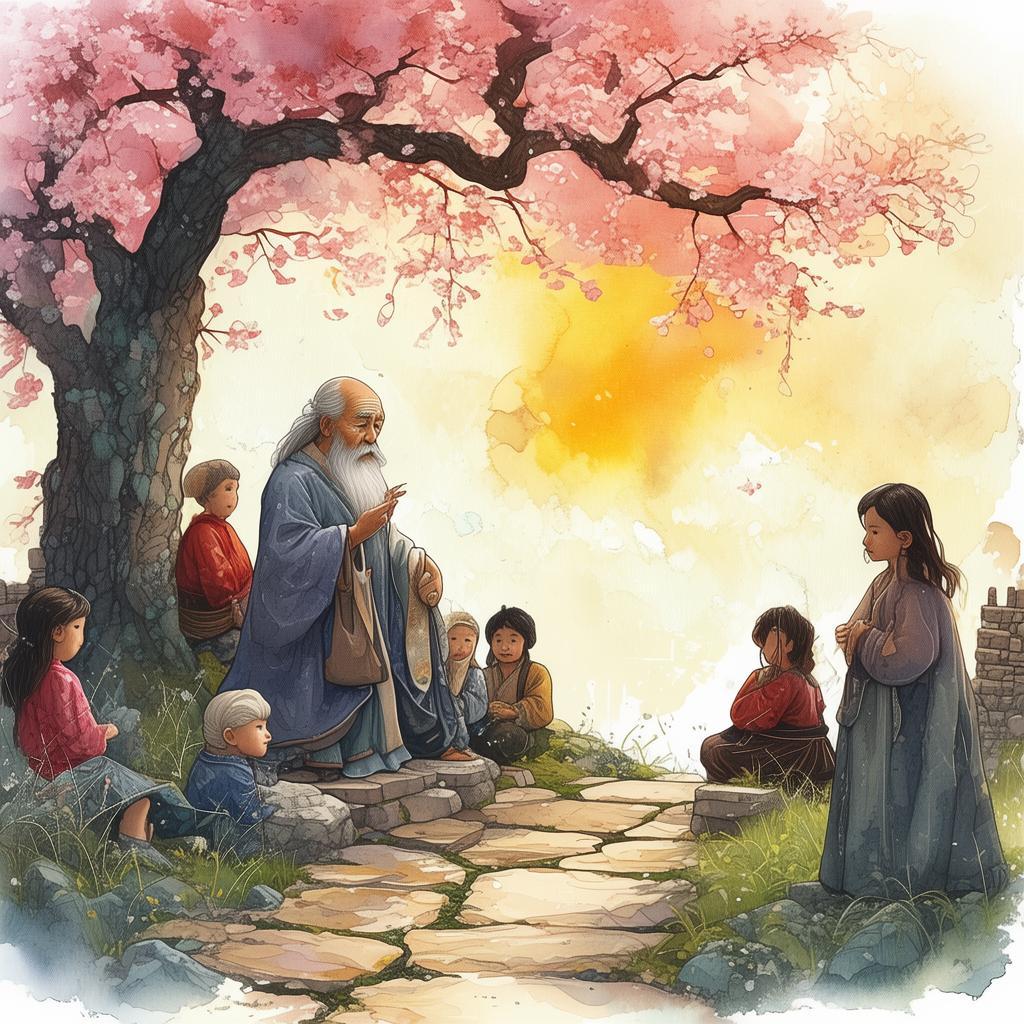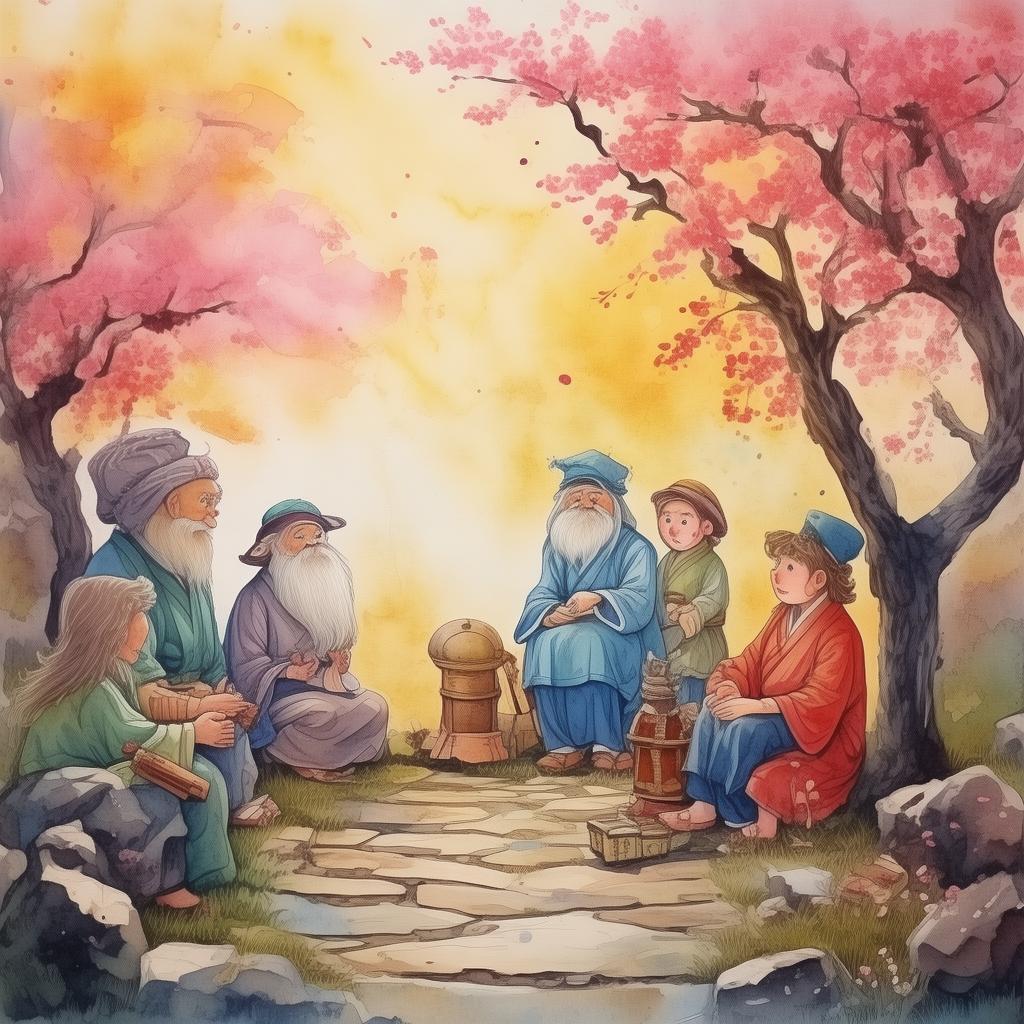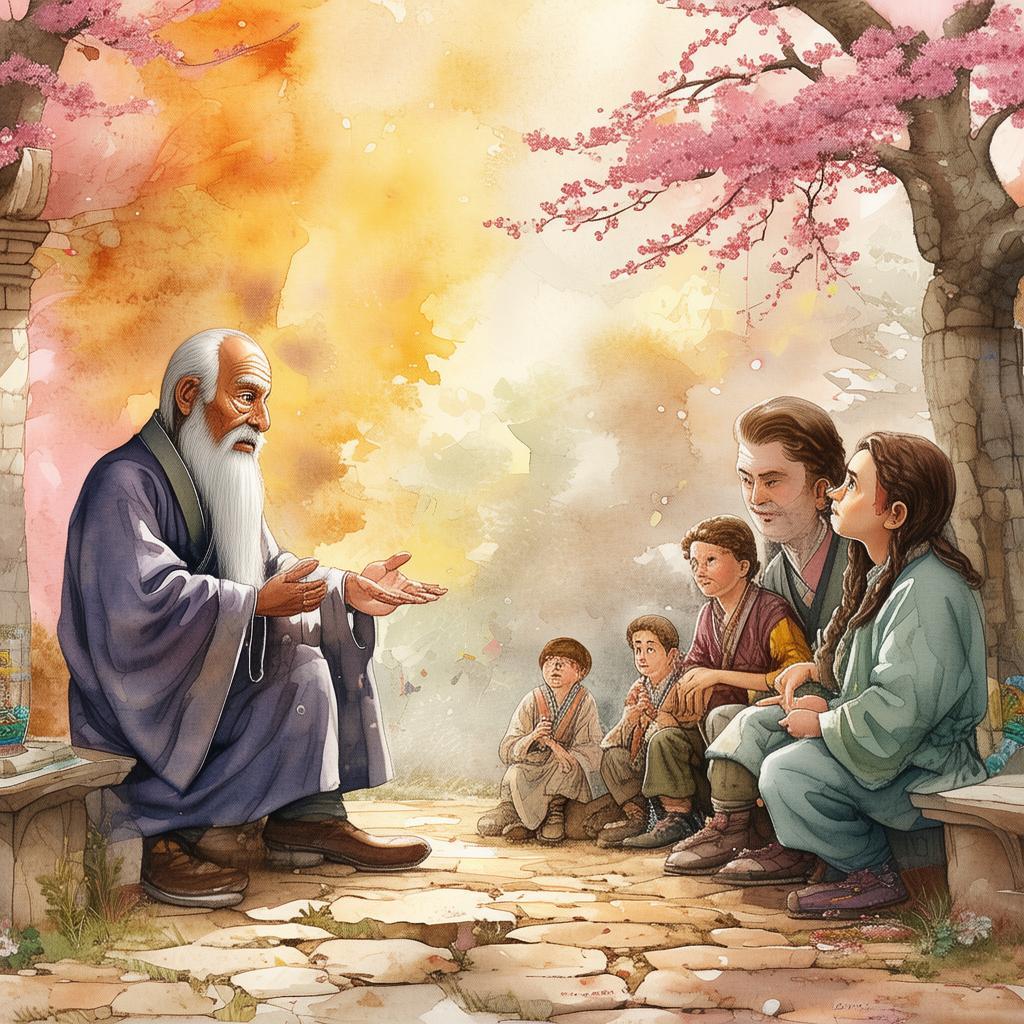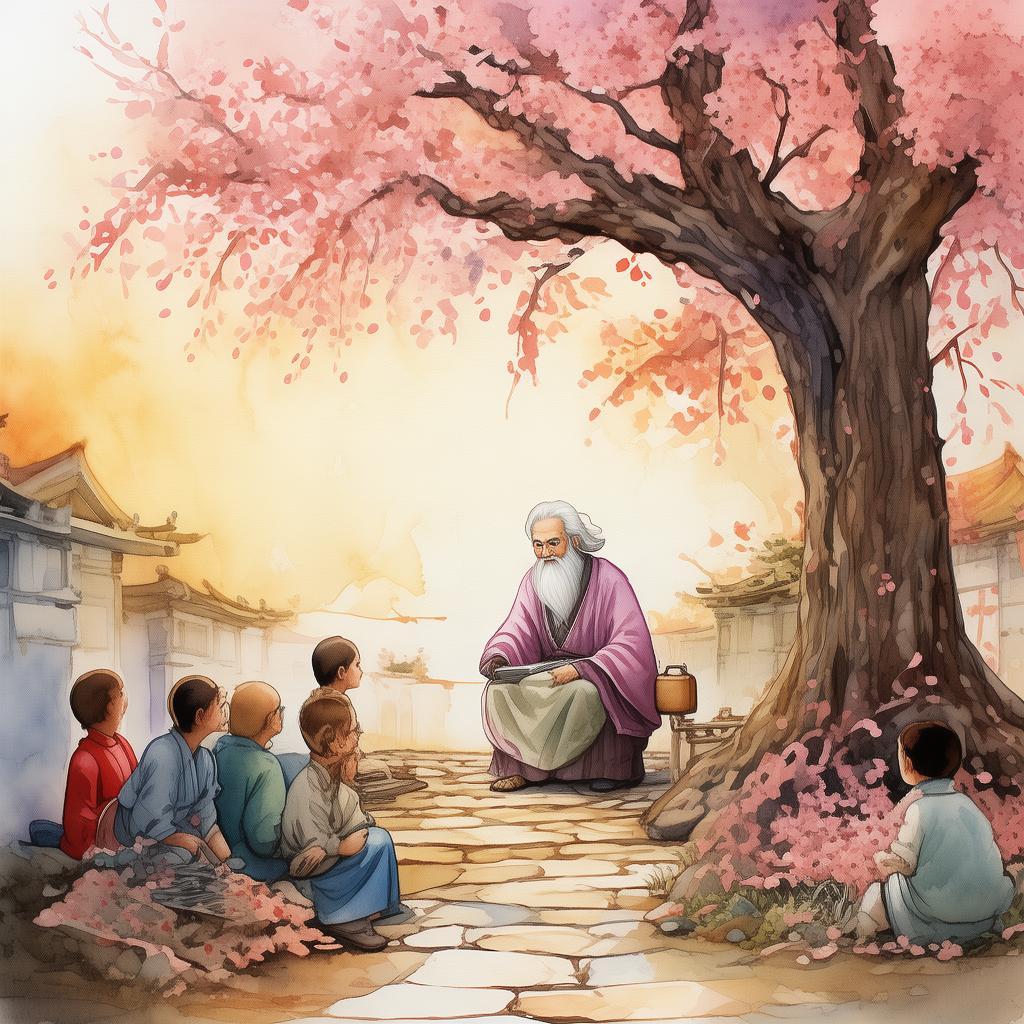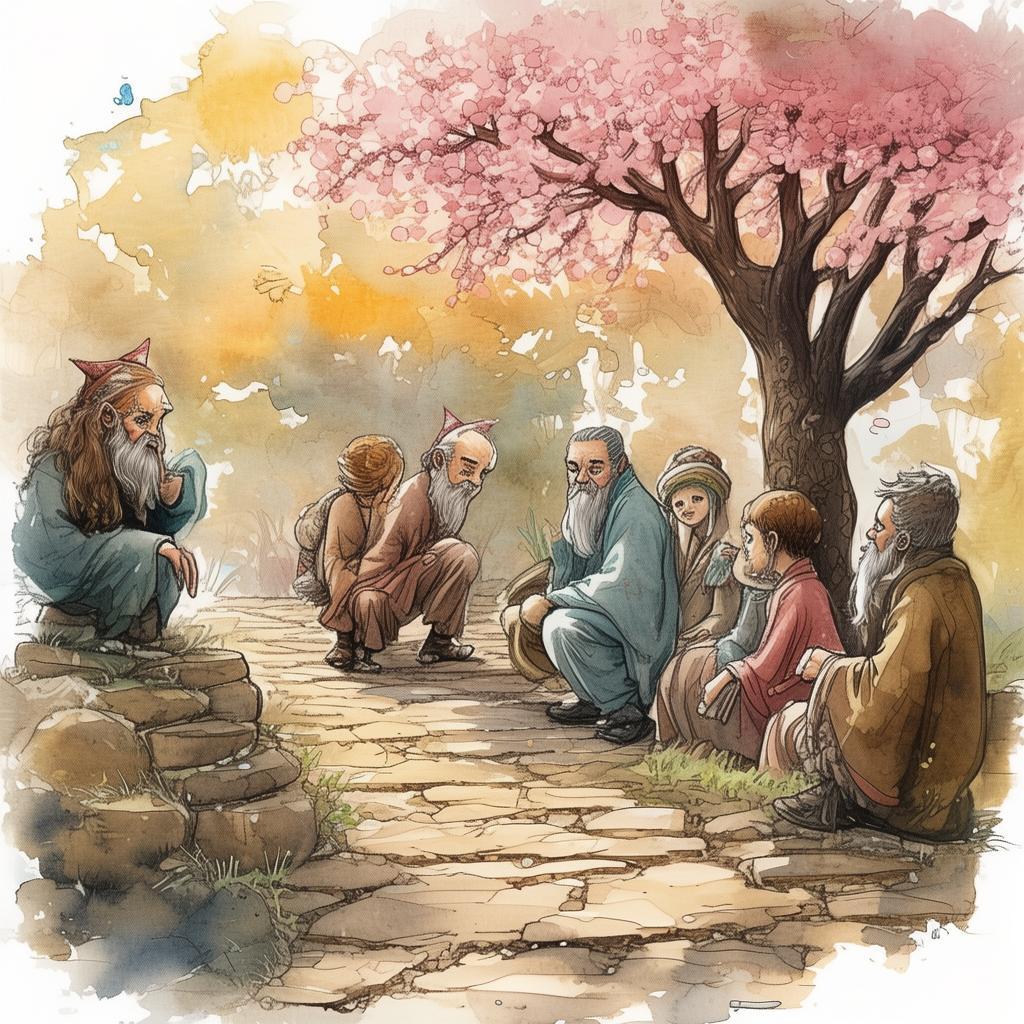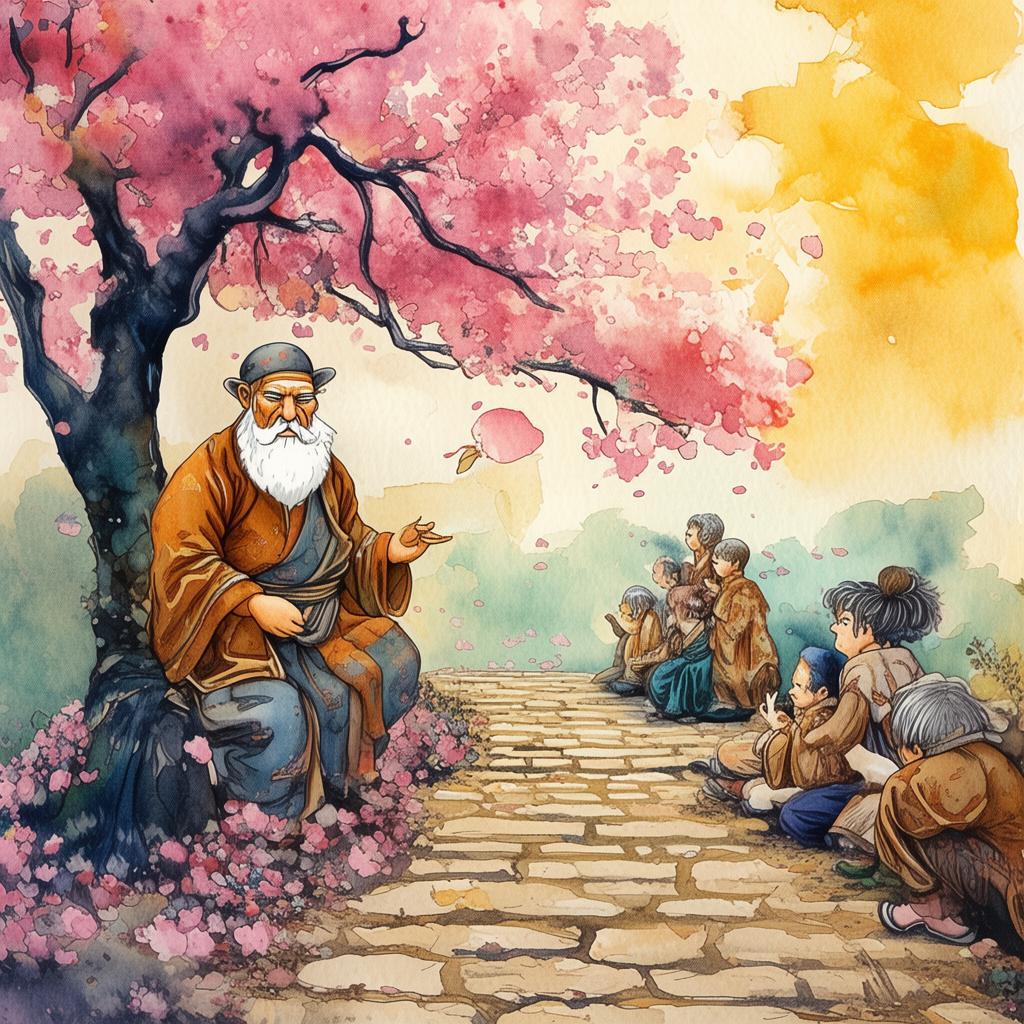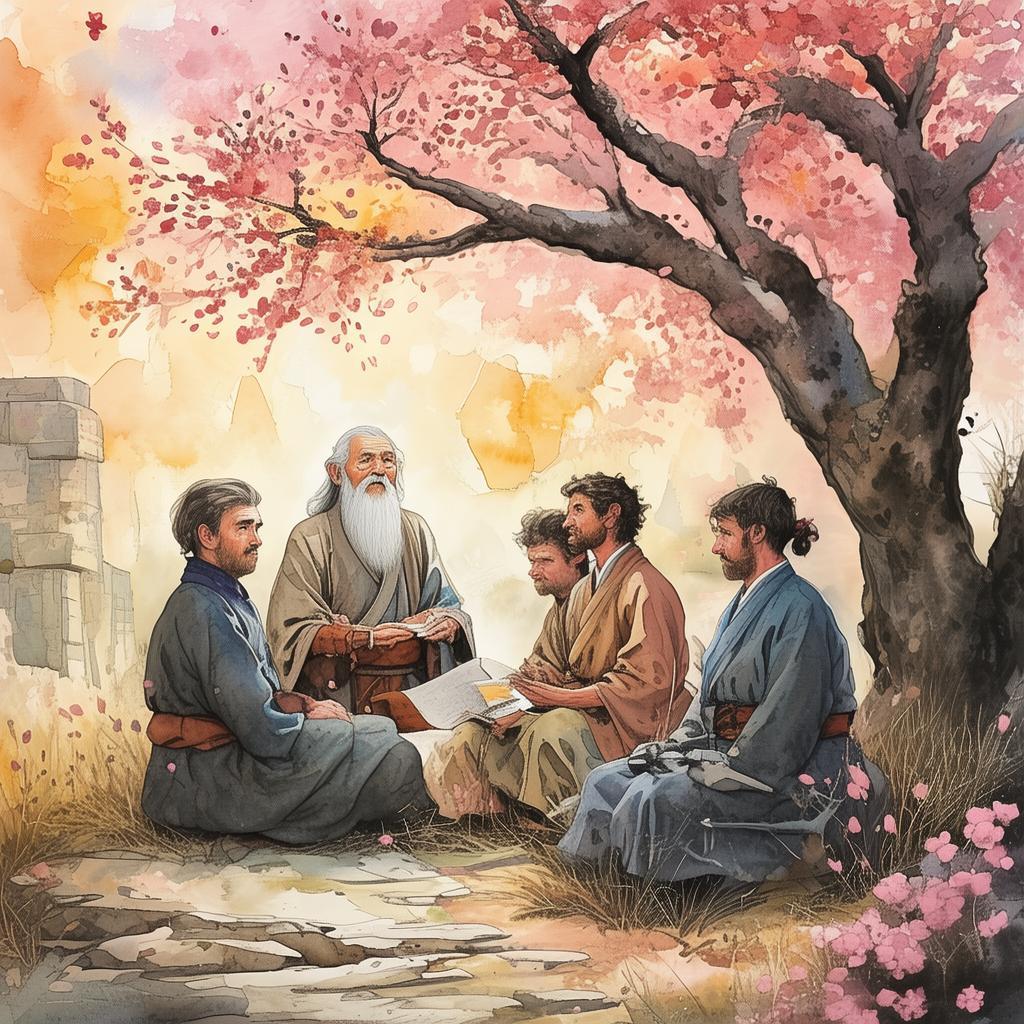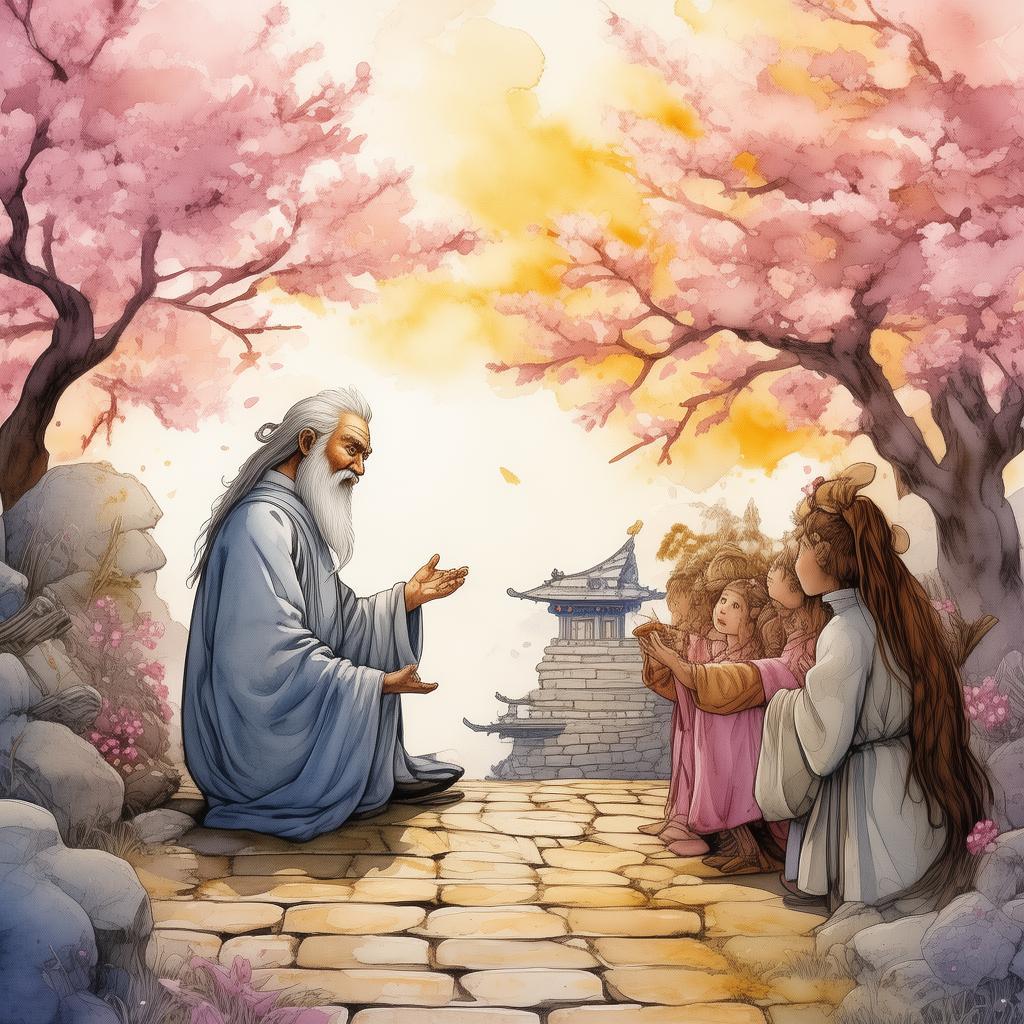The Painted Serenade: A Harmony of Dreams and Distrust
In the heart of ancient Chang'an, where the whisper of history danced on the breeze, Li Mingshu painted dreams on his canvas. His strokes were the language of the gods, bringing life to the stillness of the paper. People spoke of his paintings as though they were alive, each brushstroke a heartbeat in the world of art.
The city was abuzz with the news of a rival painter, Zhang Weijun, who had emerged with a style as bold as Li Mingshu's. It was said that Zhang's work was not merely a reflection of reality but a commentary on the human soul. The two men were like warring gods, each vying for the title of the city's most celebrated artist.
Li Mingshu was the son of a humble artisan, his talent nurtured by the whispers of the wind and the murmur of the river. He dreamt of a grand gallery where his works would hang, a testament to the beauty of the ordinary. Zhang Weijun, on the other hand, came from a lineage of esteemed painters, and his dreams were grander still. He sought to redefine art itself, to be the harbinger of a new age.
Their rivalry was fierce, a battle of dreams and egos that played out in every stroke of their brush. They met in the alleys of Chang'an, where their works were displayed side by side for the public's judgment. The city was divided, some cheering for Li's realism, others for Zhang's abstractness.
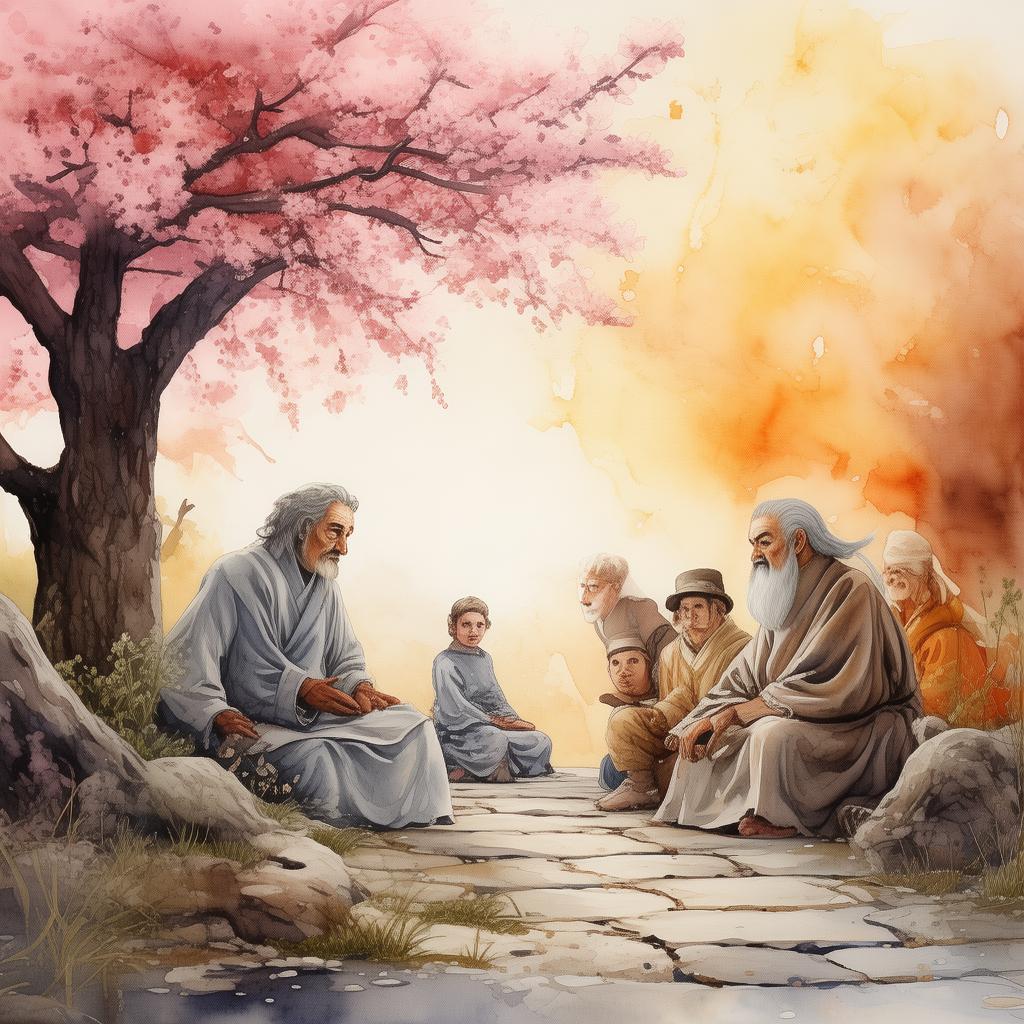
One evening, as the sun dipped below the horizon, casting a golden glow over Chang'an, Li Mingshu found himself in a small, dimly lit studio. The air was thick with the scent of linseed oil and the sound of his brush gliding across the canvas. He was working on a painting that was to be his magnum opus, a serenade to the dreams that had driven him this far.
Zhang Weijun, in his own studio across the city, felt the weight of anticipation. His latest piece was a complex composition, a tapestry of colors and symbols that was meant to unsettle and provoke. The gallery owner, a man named Yu, had promised a grand unveiling, and Zhang knew that his reputation was on the line.
The day of the unveiling was a crisp autumn morning. The gallery was filled with the murmurs of the elite and the scent of freshly brewed tea. Li Mingshu stood by his masterpiece, a painting of a moonlit night with a single, solitary tree casting a shadow on the water's edge. It was a quiet, introspective piece, a stark contrast to Zhang's chaotic display.
Zhang's work, titled "The Painted Serenade," was a cacophony of colors, a symphony of chaos that seemed to challenge the very concept of beauty. It was a reflection of the artist's inner turmoil, a battle of the soul.
As the gallery owner began to speak, a hush fell over the crowd. He praised Li Mingshu's work, a testament to the power of simplicity and the beauty of nature. But when he turned to Zhang's piece, his voice wavered. "This," he said, "is a testament to the human spirit. It is not about what is beautiful, but what is real."
The crowd gasped. Zhang's work had struck a chord, and the gallery owner's words were like a lightning bolt, illuminating the truth that lay hidden beneath the canvas.
Li Mingshu felt a strange sensation, a mix of admiration and jealousy. He had always believed that beauty was in the eye of the beholder, but Zhang's work had shown him a different side of reality. As he looked at the painting, he realized that it was not just art, but a mirror reflecting the innermost fears and desires of the human heart.
In the days that followed, the two artists found themselves at odds more than ever. Li Mingshu worked tirelessly on a new piece, one that would unite the realism of his style with the abstractness of Zhang's. Zhang, in turn, began to question his own methods, seeking a way to incorporate the tranquility that Li's work exuded.
The day of the next exhibition arrived, and the gallery was once again filled with the city's elite. Li Mingshu's new piece, titled "The Harmonious Conflict," was a beautiful blend of his realistic style and Zhang's abstract vision. It was a painting that spoke of the unity in diversity, a testament to the power of collaboration.
Zhang's latest work, "The Whispering Moon," was a quiet, serene piece that seemed to contradict his previous chaos. It was a painting that spoke of dreams and the beauty of silence.
As the gallery owner addressed the crowd, he spoke of the friendship that had blossomed between the two artists, of how they had learned from each other's strengths and weaknesses. The crowd erupted into applause, their appreciation for the art and the artists themselves palpable.
Li Mingshu and Zhang Weijun stood side by side, their works hanging side by side. They had come a long way from their bitter rivalry, each having found a new harmony in their art.
The gallery owner summed up the evening by saying, "In the end, the true beauty of art lies not in the rivalry, but in the unity of diverse visions. It is in this harmony that we find the truest expression of our creativity."
As the crowd dispersed, Li Mingshu and Zhang Weijun looked at each other with a newfound respect. They had both found the strength to embrace the other's dream, to understand that the canvas was not just a place for their art, but a reflection of their souls.
And so, Chang'an was forever changed by the painted serenade, a story of creativity and artistic strife that would be told for generations to come.
✨ Original Statement ✨
All articles published on this website (including but not limited to text, images, videos, and other content) are original or authorized for reposting and are protected by relevant laws. Without the explicit written permission of this website, no individual or organization may copy, modify, repost, or use the content for commercial purposes.
If you need to quote or cooperate, please contact this site for authorization. We reserve the right to pursue legal responsibility for any unauthorized use.
Hereby declared.
